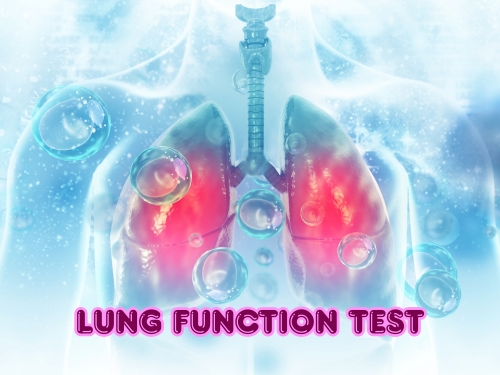Understanding Lung Function Testing
Lung function tests are specialized procedures that evaluate how effectively your lungs work. Your physician may recommend these tests to assess your respiratory health or investigate symptoms such as persistent coughing or breathing difficulties. This comprehensive guide explains the most common respiratory function tests performed in our laboratory and helps you prepare for your appointment.
Preparing for Your Lung Function Test
Before your scheduled appointment, please contact our office to confirm any specific preparation requirements. Most tests require 30-60 minutes to complete, though multiple tests may need to be scheduled across separate appointments. During your visit, our respiratory technicians will:
- Explain each procedure in detail
- Guide you through the testing process
- Ensure you achieve optimal results
While these tests should not cause pain, they do require maximum effort. Our staff welcomes any questions and will address any discomfort you may experience during testing.
Types of Lung Function Tests
Spirometry: Measuring Airflow Capacity
Spirometry evaluates the volume and speed of air you can exhale from your lungs. This fundamental test requires you to:
- Inhale as deeply as possible
- Exhale forcefully into a measuring device
- Continue exhaling for as long as possible
For accuracy, you’ll repeat this process multiple times under the guidance of a technician. Typically, spirometry is performed before and after administering a bronchodilator medication (like Ventolin) to assess improvement. Important preparation: Unless instructed otherwise, please temporarily discontinue your respiratory medications before testing.
Gas Transfer (TLCO): Oxygen Processing Assessment
This test measures how effectively your lungs transfer oxygen from inhaled air into your bloodstream. During this procedure, you will:
- Breathe into a specialized machine
- Inhale completely until your lungs are full
- Hold your breath for approximately ten seconds
Important preparation: Refrain from smoking for at least one hour before testing, and remove supplemental oxygen ten minutes prior to the test.
Lung Volumes (Plethysmography): Total Capacity Measurement
Plethysmography determines the maximum volume of air your lungs can hold. This test involves:
- Sitting inside a transparent chamber
- Breathing into a specialized machine
- Performing gentle panting breaths when the mouthpiece temporarily blocks
Bronchial Provocation (Mannitol Challenge Test): Airway Sensitivity Evaluation
This test helps diagnose or rule out asthma and related respiratory conditions. The procedure requires:
- Inhaling a mild airway irritant
- Performing multiple spirometry maneuvers
- Potentially inhaling increasing doses based on your airway response
Important preparation: This test requires avoiding caffeine and temporarily discontinuing certain medications. Detailed instructions will be provided prior to your appointment.
While safe, this test may cause coughing, shortness of breath, chest tightness, or wheezing in people with highly reactive airways.
Fractional Exhaled Nitric Oxide (FeNO): Allergic Inflammation Assessment
The FeNO test evaluates allergic airway inflammation and helps predict steroid medication responsiveness. During this test, you will:
- Inhale slowly and steadily through a mouthpiece
- Exhale steadily when your lungs are full
- Follow visual feedback to maintain proper airflow rates
Important preparation: Avoid food and drink for one hour before testing, and refrain from consuming nitrogen-rich foods on test day (including processed meats, certain fruits, and specific vegetables).
Six Minute Walk Test (6MWT): Oxygen Level Monitoring
This practical test measures your blood oxygen levels during physical activity and helps determine if supplementary oxygen is needed. The procedure involves:
- Walking along a hallway for six minutes
- Covering as much distance as comfortably possible
- Having oxygen levels monitored throughout
Respiratory Muscle Strength Tests (MIP and MEP)
These tests assess the strength of muscles involved in breathing and may be recommended if respiratory muscle weakness is suspected. The procedures involve:
- Maximal Expiratory Pressure (MEP): Inhaling deeply, then forcefully exhaling against a blocked mouthpiece
- Maximal Inspiratory Pressure (MIP): Exhaling completely, then forcefully inhaling against a blocked mouthpiece
Multiple attempts ensure optimal results.
Cardiopulmonary Exercise Test (CPET): Comprehensive Exercise Capacity Evaluation
This advanced test evaluates how well your lungs, heart, and muscles function during exercise and can help identify causes of unexplained breathlessness. The test involves:
- Exercising for approximately ten minutes on a stationary bicycle
- Experiencing gradually increasing workload until reaching maximum capacity
- Being monitored for heart rate, oxygen levels, breathing rate, and gas exchange
Important preparation: Ensure you are well-rested, refrain from smoking, wear comfortable clothing with appropriate footwear, and continue taking respiratory medications as directed by your physician.
Getting the Best Results from Your Lung Function Tests
For accurate and meaningful results, please:
- Follow all preparation instructions carefully
- Ask questions if any directions are unclear
- Inform our staff about any discomfort during testing
- Give maximum effort during all procedures
Our dedicated respiratory technicians will work with you to ensure your testing experience is both comfortable and productive.
For more information or to schedule an appointment, please contact our respiratory laboratory.
About Us
At RSDC we have a particular interest in quick approach and triaging patients with suspected lung malignancy, management of pleural diseases, sleep disorders of obstructive sleep apnoea and other more complex sleep disorders, airways disease including asthma and COPD.
We use a comprehensive approach to interstitial lung disease in addition to occupational and environmental lung disease.

